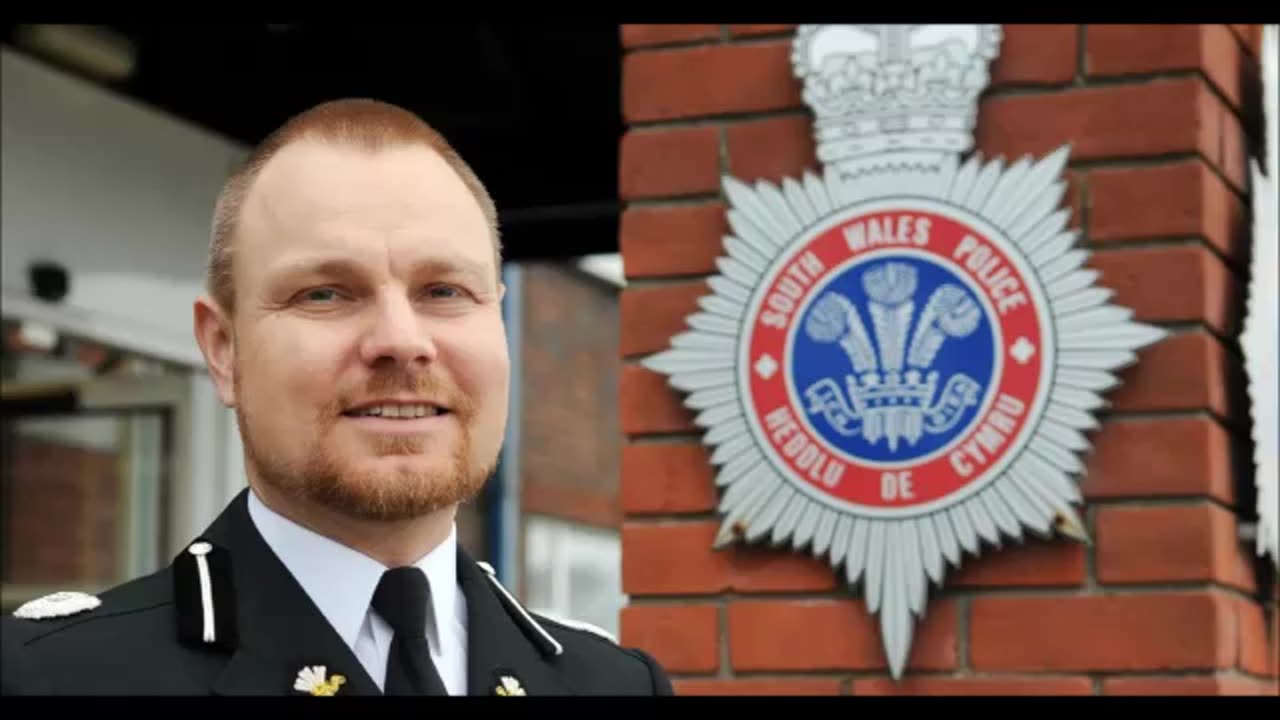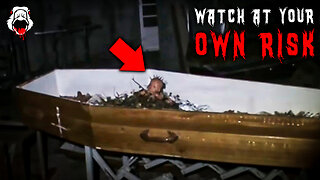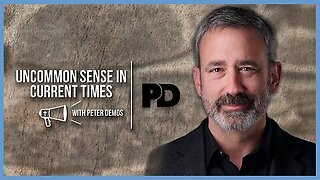Premium Only Content

Met anti-terror cop Matt Jukes ignored hard evidence of S Wales police corruption, ex-cop Tony Roach
Police whistleblower detective DC Tony Thorne: Matt Jukes Was Warned This Counterterrorism Program Was A Disaster — But Rolled It Out Anyway
Revealed: the inside story of how the British government rolled out a dangerously flawed intelligence-sharing system right as the UK suffered one of its deadliest years from terrorism.
According to hundreds of pages of confidential police emails, intelligence files, and internal police memos reviewed by BuzzFeed News, along with interviews with five sources inside Britain’s counterterrorism police, the database was plagued by crashes and blackouts, and bogged down by mass duplications that made sifting through crucial intelligence almost impossible. Officers warned that the NCIA’s problems were “critical” and that using it risked “intelligence failure.” They repeatedly deemed it “not fit for purpose” — unable to do the job it was built to do — but their concerns were brushed aside. One counterterrorism detective responsible for helping to develop the system, Tony Thorne, said that he tried multiple times to warn higher-ups about its shortcomings. “They ignored me and continued to roll out a broken system,” he said.
During the later stages of the NCIA’s implementation, in 2017, the UK suffered one of its most deadly years from terrorism in recent memory, with five incidents resulting in 40 killed and more than 900 injured. The deadliest was a bombing at the end of an Ariana Grande concert in the Manchester Arena, which killed 22 victims and injured more than 800, the majority of them children. The youngest victim, Saffie-Rose Roussos, was just 8 years old.
https://www.buzzfeednews.com/article/richholmes/uk-manchester-bombing-counterterrorism-failures
Met anti-terror cop Matt Jukes ignored hard evidence of S Wales police corruption, ex-cop Tony Roach
https://politicsthisweek.wordpress.com/2024/10/31/not-the-bcfm-politics-show-presented-by-tony-gosling-214/
Sacked police officer launches legal battle over six-month surveillance operation against him
https://www.walesonline.co.uk/news/wales-news/sacked-police-officer-launches-legal-17149915
Cardiff police officer Tony Roach was fired in 2015 by South Wales Police after being accused of gross misconduct
A sacked former police officer has launched a legal case against South Wales Police calling for details of the six-month surveillance operation he says was mounted against him.
Former licensing officer Tony Roach was fired for gross misconduct in 2015 after an investigation by the force's professional standards department.
Mr Roach, who was responsible for ensuring that pubs and clubs in Cardiff operated in accordance with the conditions included in their licences, says he was kept under surveillance for six months with cameras and microphones, and his personal phone calls intercepted, and his phone records accessed.
He says that he was told about the surveillance during a police interview and that the surveillance was given the code name Operation Kansas.
Mr Roach said that he was arrested in 2014 on suspicion of misconduct in a public office and that he and his wife Janet were both arrested on suspicion of tax fraud but that this never resulted in criminal charges.
He claims that South Wales Police went too far in its surveillance of him and breached his rights.
He has launched a legal case at Liverpool County Court in pursuit of a disclosure order to force South Wales Police to release details of its investigation.
In a witness statement, Mr Roach’s solicitor Mark Crompton stated: “The claimant [Mr Roach] is pursuing a claim against the defendant [South Wales Police Chief Constable Matt Jukes] for the misuse of private information, breach of confidentiality and a breach of the Data Protection Act 1998.
“It is alleged that following a false complaint against the claimant by a known criminal, the defendant as a public authority purported to investigate the claimant in accordance with the Regulation of Investigatory Powers Act 2000 including putting the claimant under covert surveillance for a period of around six months.
“It is the claimant’s case that the directed surveillance - which included filming and telecoms interceptions in work and outside of work - requires authorisation from at least an assistant chief constable or equivalent and must also be notified to the Surveillance Commissioner.
“It is the claimant’s case that the appropriate authority was not obtained and that the defendant therefore has unlawfully used covert techniques and infringed the claimant’s right to privacy.”
Mr Roach said: “I was a well-respected licensing officer and was commended for my work. My mental health has been destroyed by what has happened.”
He claims that the investigation was launched after an individual had made allegations, accusing him of taking bribes from the director of a door security firm in return for telling licensees to use his company’s services......
-
 LIVE
LIVE
Vigilant News Network
15 hours agoMoscow Seeks REVENGE After Ukraine Strikes Russia With US Missiles | The Daily Dose
1,194 watching -
 LIVE
LIVE
2 MIKES LIVE
2 hours agoThe Mike Schwartz Show 12-12-2024 w Dr. Michael J Schwartz
558 watching -
 6:35
6:35
China Uncensored
13 hours agoEconomic EXPERT Reveals the Surprising Truth About China's Economy
14.4K4 -
 1:17:55
1:17:55
Game On!
14 hours ago $8.93 earnedThursday Night Football NFL Week 14 Rams at 49ers!
67.1K3 -
 6:46
6:46
Dr. Nick Zyrowski
1 day agoWhat Happens If You Drink Lemon Water for 14 Days?
39.6K7 -
 12:25
12:25
IsaacButterfield
1 day ago $7.46 earnedGEN Z SHOULD BE ASHAMED!
25.8K4 -
 5:13
5:13
BIG NEM
15 hours agoIs AI Coming for Comedians Too?
19.2K3 -
 28:29
28:29
Goose Pimples
1 day ago7 SCARY Videos That’ll Make Your Knees Wobble
90.3K8 -
 52:00
52:00
Uncommon Sense In Current Times
22 hours ago $17.32 earned"Inclusive or Excluding? The Hidden Agenda Behind 'Happy Holidays"
86.9K14 -
 2:36
2:36
Canadian Crooner
1 year agoPat Coolen | Frosty the Snowman
51.2K5